We were already tired by countless hills and the lack of privacy on the road. The number of people, for whom a mzungu is as exotic sight as a lion could be for Europeans, together with their curiosity and lack of any understanding of our concept of private space, it had been sapping our energy for last weeks. Still, we were about to enter one of the most densely populated countries on the continent, not without a reason called also “a country of thousand hills”.
Despite the warnings, the Rwandan customs officers did not confiscate our plastic bags. Actually there was no baggage check at all, so we did not learn what exactly are the rules regarding the most common rubbish in the world. Nevertheless, the plastic bags are not present in Rwanda, neither in the shops nor on the roadside, which makes it perhaps the cleanest country within range of a few thousand kilometers.
We entered the country through a long valley, where the usual agricultural order seemed to be inverted. The bottom was covered by a thick carpet of tea bushes, while maize fields attached to tiny mud huts occupied entire slopes, up to the tops of the mountains.
Having found no church, police station or other similar facility, we decided to try a wild camping. An elevated rock by a bend of the road seemed to be desolated enough. No more than five minutes had passed before we were discovered by a local shepherd boy, who brought some adults half an hour later. The difficult conversation finished with a “no problem” statement on both sides and we spent the night peacefully, under almost full moon and without a sight of electrical light anywhere around. Except, of course, for the cars' lamps.
The next day, around noon, we eventually arrived to Kigali and warmly welcomed the civilization, represented by an ATM and a nearby restaurant which we plundered with pleasure. Having nothing to do in the centre, we pedalled away from the capital.
Just before leaving we realized that we had already became famous in Rwanda. That happened because the previous day some three British cyclists appeared in the national TV. Nobody seemed to bother that we were only two, from Poland, and looked differently. Mzungu is mzungu. How many African faces can I remember without making a mistake? How many Africans I cannot recognize despite having met them the previous day? No wonder that every member of the narrow elite, which has access to electricity and TV, greeted us and congratulated the interview.
The night caught us on the road. In the last remains of sunlight we spotted a row of unfinished houses on the right and turned there, in order to pitch the tents on a meadow behind them. Of course there was no chance to hide from the people, but we tried just to reduce their number.
Although the bravest ones had approached our camp and exchanged courteous “no problem” with us, three policemen appeared just as we had finished the camping works and started cooking. Initially they wanted us to leave to some other, very unclear location, but eventually agreed that we could stay. Of course our own security was the issue, but not exactly a problem. As the French–speaking officer explained in basic English, “in Rwanda there is only one problem: the genocide”. Very reassuring.
Leaving us there was unacceptable and soon we learned that a police guard would be assigned to our camp. Protests were fruitless and half an hour later three men, armed with Kalashnikovs, appeared from the dark and greeted us. “We are here for your security”, said the leader, before they sank again into the night and took positions in surrounding bush, even refusing to have a sip of hot tea we had prepared. The duty was not easy because of the nearby swamps. In the morning our tents were cold and dripping wet, exactly as the officers who said goodbye at the sunrise.
In Gitarama we had to answer the important question: go to Kivu or not? We had already solved positively the dilemma regarding a visit to Burundi and about the lake our final decision was the same. We headed west.
Again we cycled until the night came. A local man offered to lead us to a catholic church, but at the final destination we found a strange set of a genocide memorial with a lodge, offering spartan rooms with no electricity for ridiculous prices. A patch of forest a few kilometers further was much more appealing and motivated us to wake up quite early, before any huge crowd gathered around.
The road was still good and the green slopes with houses of white walls and tiled roofs resembled more the Mediterranean than any part of Africa. With long, beautiful downhills we saw Kivu Lake pretty soon. Its' fjord–like coast looked great and we approached a church located close to water. Despite a couple of machete–slashed skulls and bones looking from a glassed shelf, the people resulted to be very friendly. A patch of lush grass served as a campsite and we had the long awaited opportunity to wash our dirty clothes and sit in comfortable chairs during the evening.
Perhaps we would have made different decision if we had known about the quality of further road. The lack of asphalt surprised us. Despite the great views over the lake, we were not enthusiastic about crossing another set of hills on the dirt. The routine was well established however, and we experienced no problems in arranging camps by churches of different denominations of Christianity. There was green, soft grass and access to water.
Although remote, the lakeside route was inhabited by numerous beggars. There are many of them in Rwanda everywhere, leaving it second only to Ethiopia in that matter. Perhaps the presence of aid organizations is some reason for that. In the West people still have in mind the grim images of 1994 genocide and send money there. Meanwhile, the population is booming in already overcrowded Rwanda. With many houses hosting 10 or more children, I will not be surprised if someone again takes a machete to solve the problem of overpopulation. Just stop the aid and people may realize again that there is not enough land for everyone in the country.
Approaching Cyangugu we found ourselves on asphalt again. We were surprised by the sight of the towns of both sides of the border. The Democratic Republic of Congo, known as one of the most dangerous and unstable places in the world, displayed a set of huge mansions and new construction sites. Not much less wealth was visible on the Rwandan side. It seemed like the border business was very profitable.
After a traditional night by a church we started cycling quite late. The impressive 700m descent gave no opportunity to gain much speed or enjoy great views. We did it in the dark. Having crossed an unknown but very tidy town, on a flat, brand new road we arrived to the border crossing. A row of empty oil barrels blocked the road, saying that the border was closed. The soldiers confirmed it and the commander initially tried to turn us back to the town, but finally agreed that we pitch the tents just under the windows of immigration office.

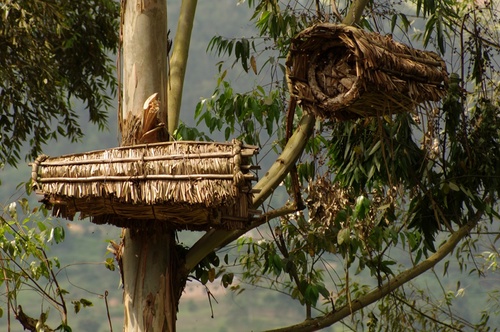
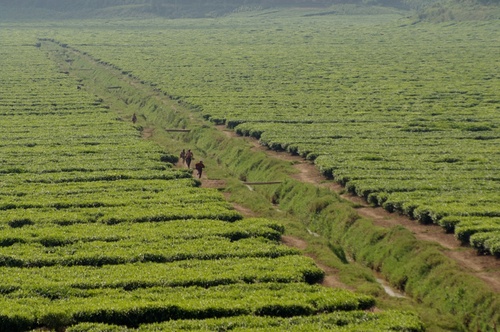
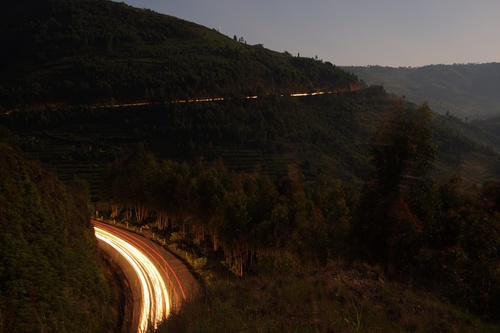
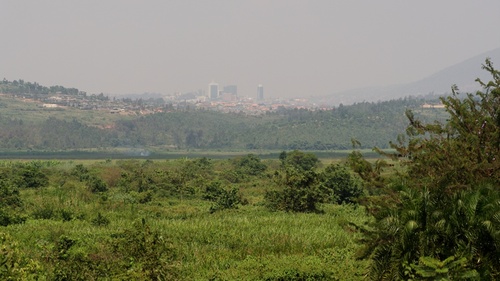
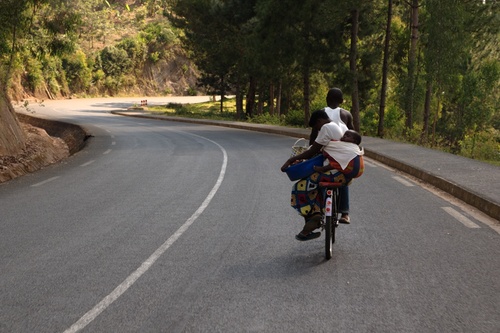
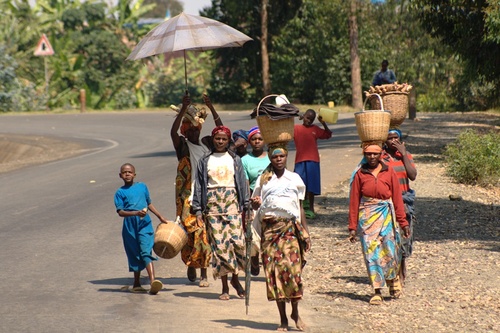
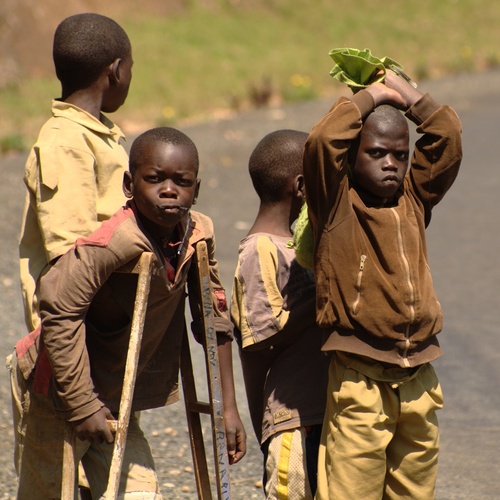
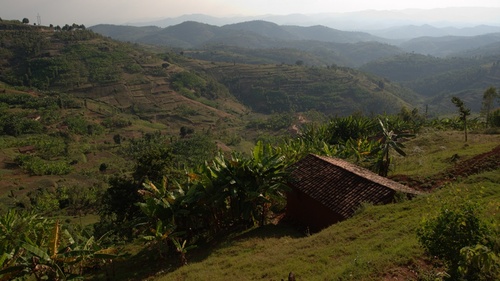
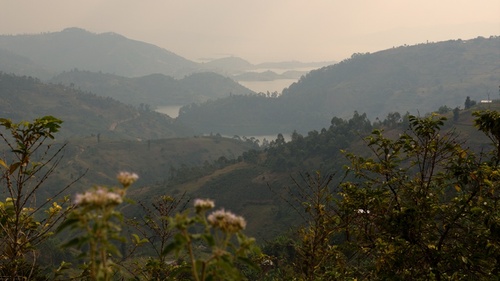
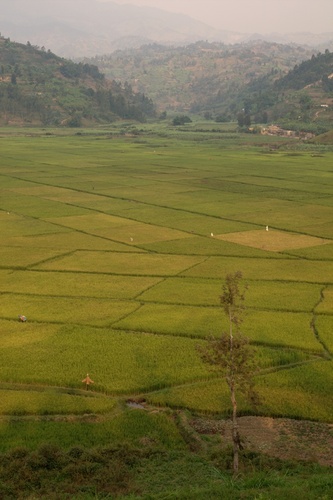
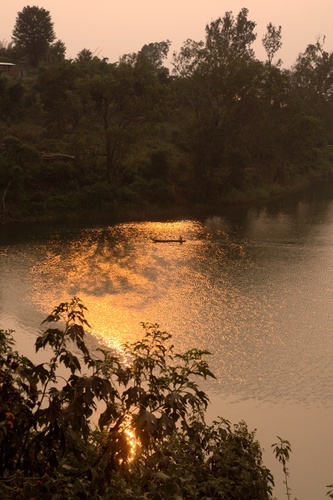


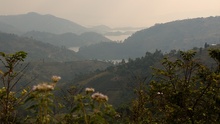
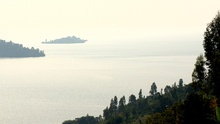
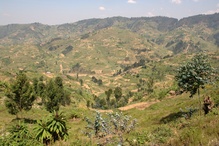
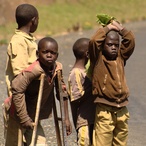
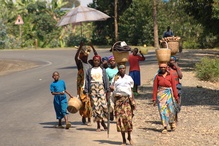
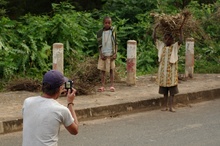
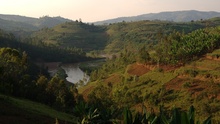
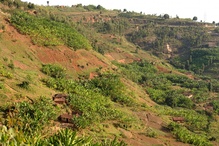
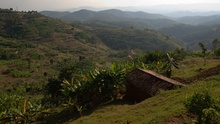
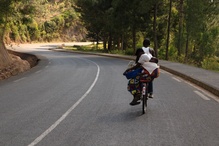
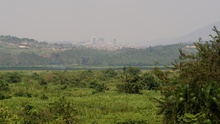
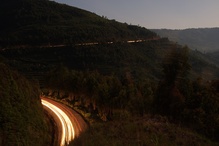
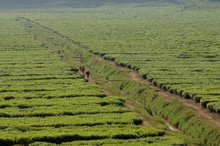
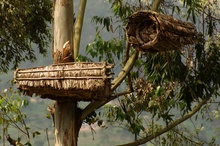
Comments:
hose morales
Jedziesz, jedziesz!
Szymon Stoma
Michał
mama
Vito
Miłej drogi!!!
Fenix
Michał
izsa
arkosław
więc nie dziwię się zostawiałeś dostaliście obstawe policyjną.
Nie dawno rozpoczeła się olimpiada, Ty też jesteś jak olimpijczyk. Od początku śledzę tą wyprawe i nie mogę się nadziwić. Powodzenia w dalszej drodze.